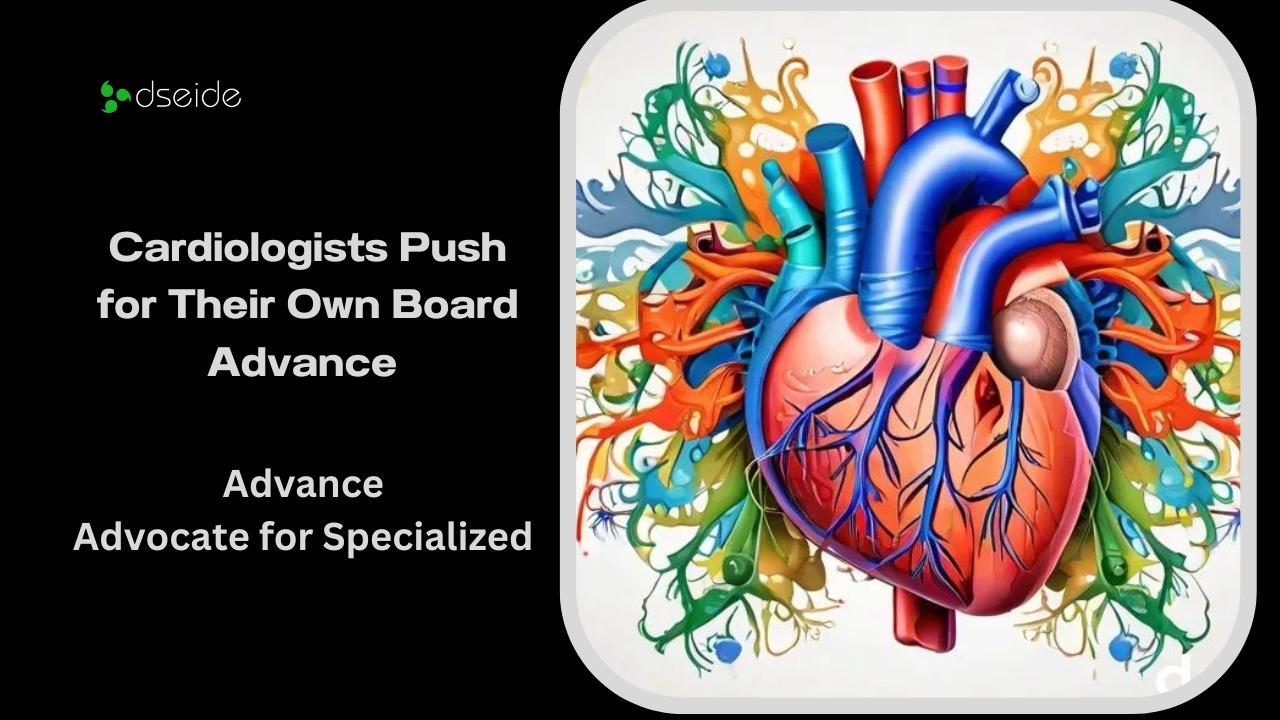Cardiologists Push for Their Own Board Advance Advocate for Specialized Leadership

The Call for the American Board of Cardiovascular Medicine
Update: This article was corrected to include the American Heart Association (AHA) in the board proposal coalition.
A coalition of leading cardiovascular organizations, including the American College of Cardiology (ACC), American Heart Association (AHA), Heart Failure Society of America (HFSA), Heart Rhythm Society (HRS), and Society for Cardiovascular Angiography & Interventions (SCAI), has proposed the establishment of a dedicated board for cardiovascular medicine under the American Board of Medical Specialties (ABMS).
Why is a Separate Board Needed?
Dr. Kuvin: "Cardiology has clearly distinguished itself from internal medicine. Over the past few decades, we've achieved remarkable advances in technology and care, with evidence-based guidelines specific to cardiovascular disease. We have carved out a separate specialty with dedicated sub-specialties, training programs, data, clinical trials, and competency statements."
Dr. Baqal: "Cardiology is one of the largest specialties in terms of representation across professional organizations. We need a board that understands our unique needs as cardiologists."
Is This Proposal a Reaction to ABIM Policies?
Dr. Kuvin: "No, this isn't about dissatisfaction with the American Board of Internal Medicine (ABIM) or its policies. It’s about recognizing cardiology as an evolved, distinct specialty needing its own governance."
How Would the New Board Be Different?
Dr. Kuvin: "This board will be exclusively for cardiologists, managed by cardiologists. It will help define and maintain competency standards specifically tailored to our field, allowing those most familiar with the specialty to govern it."
Dr. Baqal: "We hope this new board will find more efficient and transparent ways of maintaining certification, reducing undue stress and strain on physicians."
The Future of Cardiovascular Medicine
Dr. Kuvin: "Cardiovascular medicine has been revolutionized. Treatments that once required long hospital stays have been replaced by advanced technologies and therapies. Looking forward, we expect continued advances in technology, medicine, and evidence-based care, all aimed at reducing cardiovascular disease burden. A dedicated board would ensure that the evolving needs of patients and professionals are met."
Dr. Baqal: "As an early-career physician, I hope this new board advocates for cardiovascular professionals' rights and fosters unity in the field."
Background on the Proposal
The proposal to establish the American Board of Cardiovascular Medicine is driven by the belief that cardiovascular medicine has become a distinct field with unique needs, separate from other internal medicine specialties. Over recent decades, the field has grown dramatically in complexity and scope, incorporating sub-specialties such as interventional cardiology, electrophysiology, heart failure, and cardiac imaging, among others. This growth has led many in the field to argue that a dedicated board is necessary to ensure that certification standards are tailored to the specific competencies required for modern cardiovascular care.
Reasons for a New Board
Specialized Expertise: Cardiologists feel that the current certifying board, the American Board of Internal Medicine (ABIM), does not fully represent the specialized needs and evolving practices of cardiovascular professionals. A dedicated board would better address the specific competencies required in cardiovascular medicine.
Governance by Peers: One of the primary motivations for a new board is the desire for self-governance. Cardiologists believe that a board comprised solely of experts in their field would better understand the nuances and complexities of cardiovascular care, ensuring that certification standards are appropriate and relevant.
Tailored Certification Pathways: A new board could create certification pathways that are more aligned with the needs of various sub-specialties within cardiology. For example, certification could become more focused on competency-based assessments rather than traditional high-stakes testing.
Potential Impact on Cardiologists
For Established Cardiologists: The creation of a new board could mean changes in the certification or recertification process. The transition could affect the requirements for maintaining certification, with an emphasis on more relevant, practice-specific evaluations.
For Early-Career Cardiologists: New fellows or those entering cardiology training might experience a revised pathway that aligns more closely with their chosen sub-specialty. The focus could be on continuous learning, self-assessment, and targeted education to address knowledge gaps.
Concerns and Criticisms
While many cardiologists support the idea, there are also concerns:
Fragmentation of Medical Specialties: Some worry that creating a separate board could fragment the certification landscape and reduce consistency in standards across different medical specialties.
Implementation Challenges: Establishing a new board involves navigating complex bureaucratic processes and gaining approval from the American Board of Medical Specialties (ABMS). There are also logistical and financial implications for creating a new certifying body.
Potential Redundancies: Critics argue that the ABIM could adapt its existing framework to meet the evolving needs of cardiologists, making a separate board unnecessary. They believe reforms within ABIM might be a more efficient approach.
What Comes Next?
-
Review and Approval Process: The application for the new board is currently under review by the ABMS. This process involves evaluating whether there is a legitimate need for a new board, its potential impact on the medical profession, and how it aligns with the overall goals of specialty certification.
-
Public Commentary Period: Until July 24, 2024, there is an open comment period for the public, including non-cardiologists, to provide input on the proposal. Feedback from a wide range of stakeholders is considered vital in shaping the final decision.




